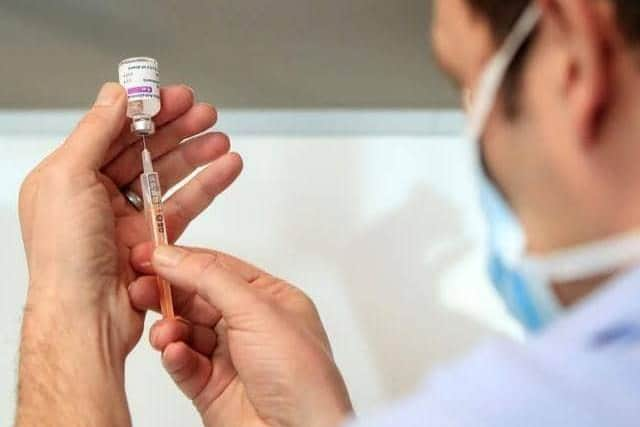Uptake of childhood vaccines protecting against measles, whooping cough and meningitis decreases in Milton Keynes
and live on Freeview channel 276
Uptake of childhood vaccines protecting against measles, whooping cough, and meningitis in Milton Keynes has fallen following the Covid pandemic, new figures show.
As a result, cases of measles and whooping cough are rising.
Advertisement
Hide AdAdvertisement
Hide AdThe growth of 'vaccine hesitancy' has led the UK Health Security Agency to launch campaigns aiming to boost uptake as cases of measles and whooping cough are surging across the UK.


As part of our ongoing series looking at how the Covid pandemic has changed society, figures from the UKHSA show 87.4% of five-year-olds in Milton Keynes last year had both doses of the MMR vaccine – which protects against measles, mumps and rubella.
The uptake was down from 89.7% in 2019-20, before the pandemic hit.
It comes as there have been 730 cases of measles in England since October last year. The current outbreak was initially in Birmingham and the West Midlands – but cases have now also been identified in the North West, London, East Midlands and Yorkshire and the Humber.
Advertisement
Hide AdAdvertisement
Hide AdSteve Russell, NHS England’s director of vaccinations and screening, said: "Measles is one of the most infectious diseases in the world and can cause serious harm to adults and children of all ages.
"But the NHS MMR vaccine gives life-long protection against becoming seriously unwell, so with cases of measles on the rise, it is not worth the risk of going without this vital protection."
Across England, uptake of the MMR vaccine has fallen from 86.8% in 2019-20 to 84.5% last year.
Dr Gayatri Amirthalingam, consultant medical epidemiologist for immunisation at UKHSA, added: "Anyone who is not vaccinated against measles can catch it.
Advertisement
Hide AdAdvertisement
Hide Ad"Being unvaccinated also means you risk spreading the disease to others, including those at greatest risk of becoming seriously ill – like infants, who aren’t able to receive their MMR vaccine until their first birthday, pregnant women and those with a weakened immune system."
Similarly, whooping cough cases are on the rise, with 553 confirmed in England in January alone. This is compared with 858 cases for the whole of last year.
These recent cases include 22 infants aged under three months.
In Milton Keynes, uptake of the six-in-one vaccine – which protects against whooping cough and polio – also fell from 94.9% of two-year-olds in 2019-20, to 93.6% last year.
Advertisement
Hide AdAdvertisement
Hide AdThe six-in-one jab is given to babies when they are 8, 12 and 16 weeks old.
Mr Russell said: "With whooping cough on the rise, it is important that families come forward to get the protection they need.
He added pregnant women or children not up to date with their vaccine should contact their GP to organise an appointment.
Children need two doses of the MMR vaccine for full protection. The first dose is offered around their first birthday, and the second at around the age of three years and four months.
Advertisement
Hide AdAdvertisement
Hide AdDr Sarah Whiteman, Chief Medical Director at BLMK Integrated Care Board, said: “Measles is a serious infection which can cause a very unpleasant illness. It can lead to hospitalisation and other complications and, in rare cases, measles can even be fatal. The risk of complications is higher in groups such as babies and young children, pregnant women, and people with weakened immunity.